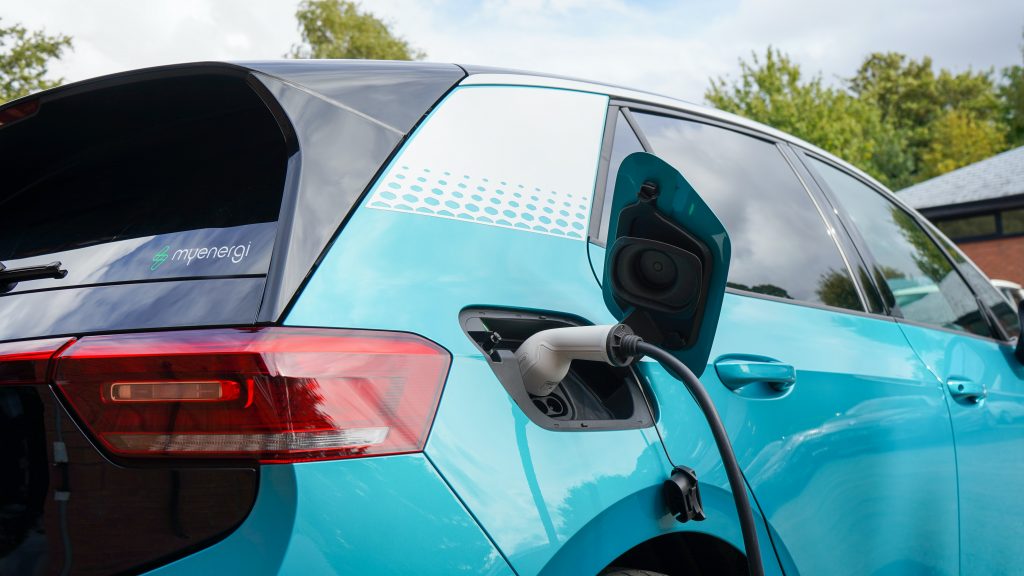Every year, the NI Connect event brings together engineers and business executives from across the globe to discuss the most recent developments in cutting-edge technologies and strategies. At the most recent NI Connect in Munich, NI announced the High Power System-17000, their highest performing EV battery cycler to date. With 150kW of power, the HPS-17000 offers a modular design created to improve scalability, flexibility, and performance.
The HPS-17000 joins NI’s existing portfolio of EV battery cyclers aiming to give more freedom to clients who are confined to large standalone racks, inflexible layouts, and constrained lab scaling. NI’s specialized modular architecture, software capabilities, and knowledge of hardware design is instrumental to future-proofing these battery validation labs.
With the HPS-17000, engineers now have greater ability to reorganize their test setups and move equipment, thanks to Time-Sensitive Networking technology- which enables multiple HPS-17000 cyclers to be synchronized down to the microsecond. This synchronization capability allows for battery design and test engineers to more easily correlate cycler actions with external measurements from high-accuracy current and voltage sensor units- enabling them to set up, carry out, and report on the test more quickly and efficiently.
The additional features of the HPS-17000 equip it to meet the growing demand for EV batteries. These features include high frequency test signal production, with modes that range from 400V to 1500V. The modularity of the cycler is another beneficial feature which results in enhanced serviceability and reduced downtime (thanks to interchangeable power bricks). The HPS-17000 also allows for Parallel Operation of large-scale, distributed deployments by utilizing time synchronization over Ethernet.

How do Electric Vehicle Batteries Work?
It is difficult to appreciate the technical advancements of the HPS-17000 without first understanding the importance of EV battery cyclers.
A “battery cycle” refers to when the battery goes through one complete discharge followed by one full recharge of energy. Unlike the battery in gas-powered automobiles, which are used to start the engine and power things such as the A/C and radio, the battery in an electric car operates everything. A crucial difference to remember is that the battery of an EV controls the electric motor- or more specifically, it powers a controller that runs the electric motor.
For this reason, the battery must be strong and durable enough to get from point A to point B. While common alkaline batteries are constructed to be disposed of after use, EV batteries must be rechargeable. A rechargeable battery works by restarting the electron flow by using electrical energy to flip the negative and positive poles of the electrochemical cells.
The most common batteries for electric vehicles are lithium-ion batteries, which are often utilized in electrical equipment like laptops due to their lightweight design and minimal maintenance needs These batteries have a higher energy density than other batteries, and are less prone to self drain while not in use. Lithium-ion batteries are currently the ideal option for powering electric vehicles because they present less potential for complications when compared to other rechargeable (such as lead-acid or NiMH) batteries.
Battery cyclers are an essential part of the modern day battery test lab, as they allow engineers and technicians to thoroughly assess important safety aspects of the batteries such as vulnerability to overheating. The modular design of the HPS-17000 also allows the flexibility needed to enhance overall design and features.
When the battery lab is future-proofed, it can more easily take on the challenges of growing demand and new technologies. Increased safety and efficiency within these labs helps bring the electric vehicle technology of the future closer to becoming a reality.
Additional information:
https://auto.howstuffworks.com/fuel-efficiency/vehicles/electric-car-battery.htm#pt2







